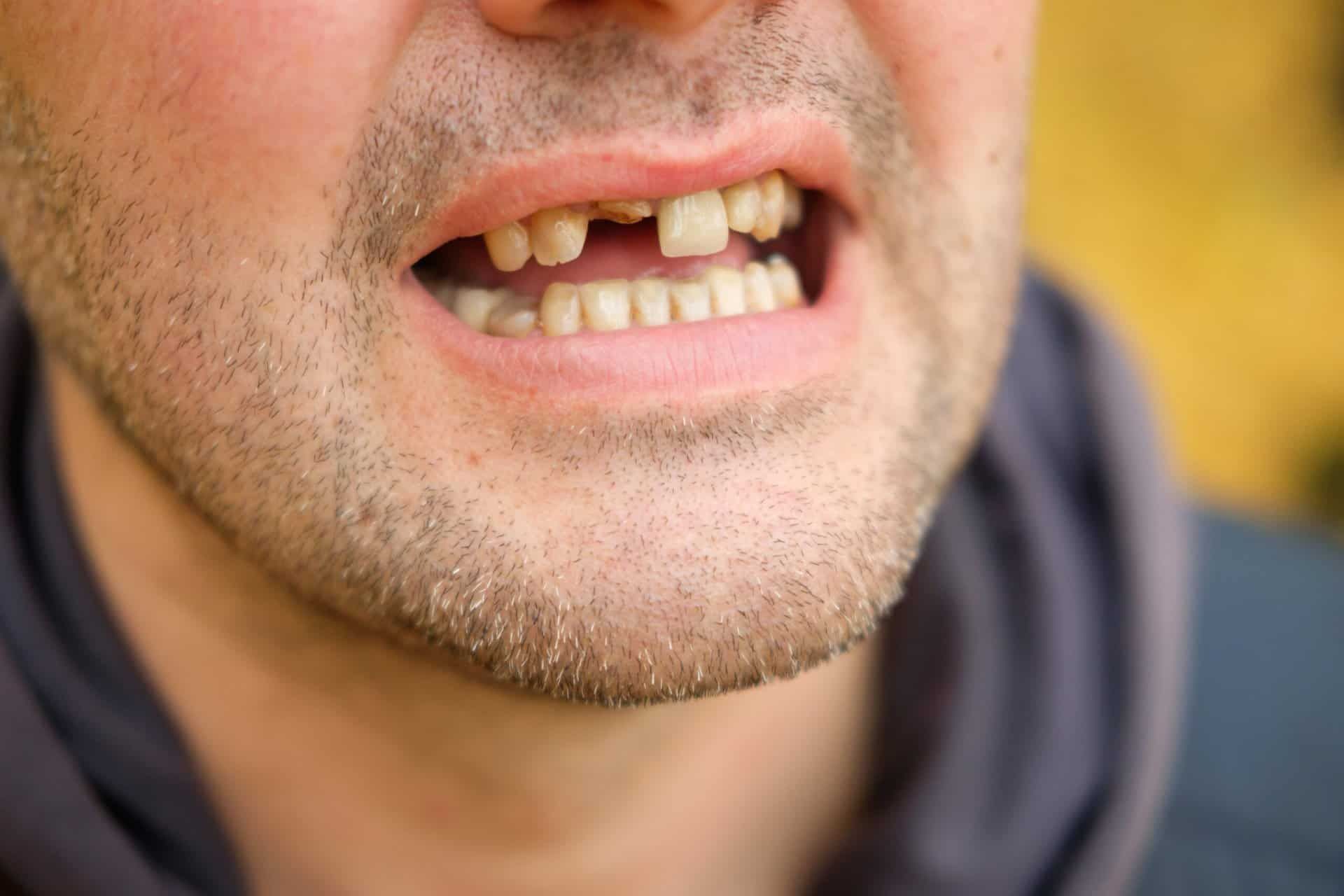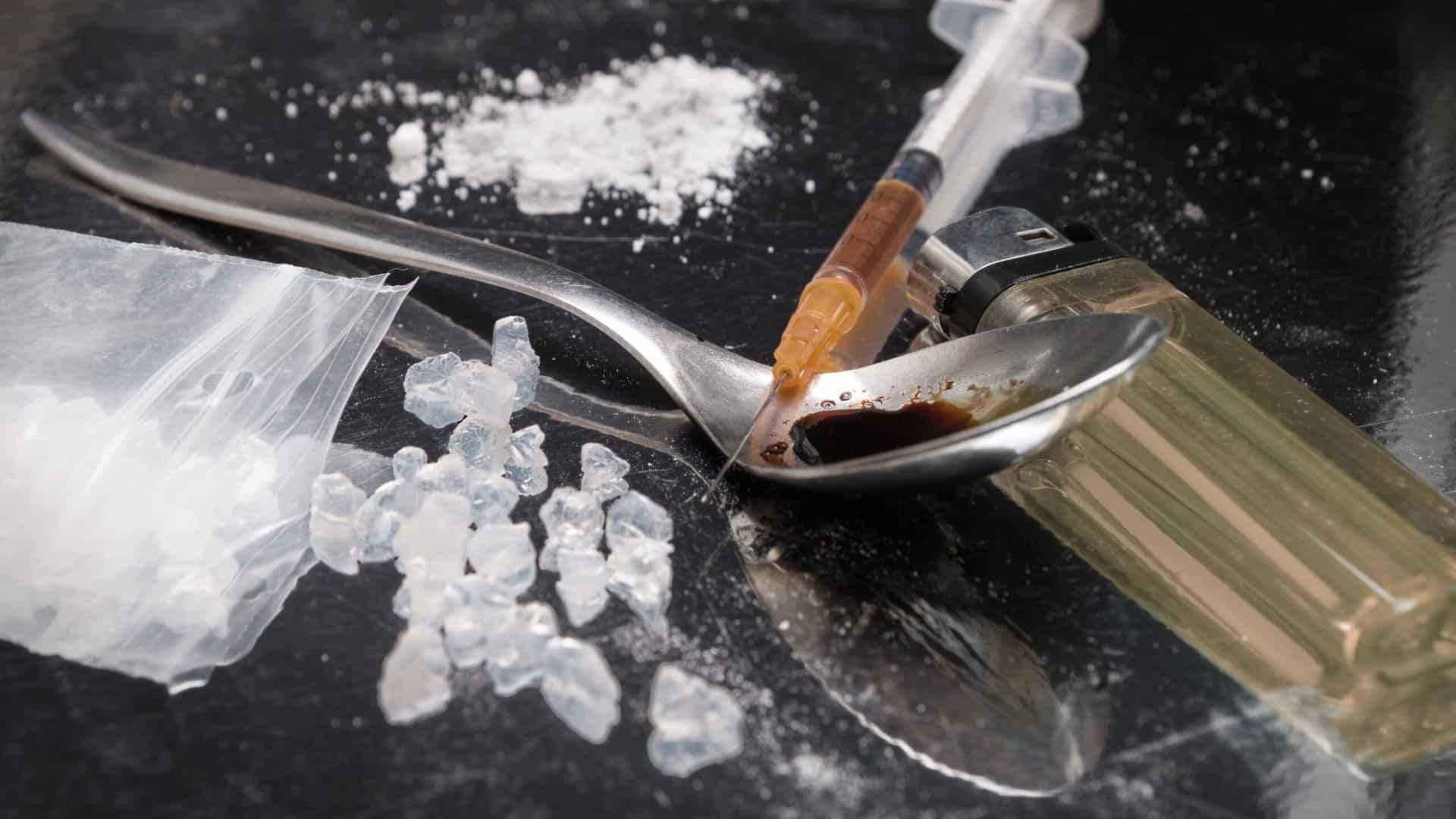What is Meth Mouth?
Understanding Meth Mouth and Its Impact
Meth mouth is a severe dental condition resulting from prolonged methamphetamine use, leading to significant oral health issues. This condition, known for causing rampant tooth decay, gum disease, and meth teeth loss, can escalate quickly due to meth’s corrosive properties and its effects on saliva production. Symptoms like meth dry mouth, swollen gums, and painful infections leave lasting damage, impacting not just oral hygiene but overall quality of life. Early identification of meth mouth symptoms and seeking timely meth mouth treatment are crucial steps toward recovery and restoration.
The progression of meth mouth involves distinct stages, from initial enamel damage to severe tooth loss, with contributing factors such as dry mouth, teeth grinding, and poor dental hygiene. Recognizing these causes and understanding how to treat meth mouth can pave the way for effective intervention and prevention. Continue reading to explore the causes, symptoms, and solutions for meth mouth, and learn how meth addiction treatment can make a difference in both oral health and recovery.
Methamphetamine misuse can have devastating effects on overall health, but those abusing meth develop meth mouth, which can lead to many other dental health concerns.
Additionally, methamphetamine is acidic and corrosive, which can trigger bad breath, tooth decay, gum problems, and loss of teeth. Painful infections can occur and lead to further oral disease. Some experience an urge to grind their teeth, which can cause further damage. Methamphetamine addiction can be very challenging to achieve, but it is possible to be successful
How Meth Mouth Develops
Meth mouth results from methamphetamine abuse and can develop quickly from the toxins in meth affecting oral hygiene. Abuse extending throughout the year can result in cavities, infections, swelling, pain, chipped and loose teeth, and periodontal disease from dry mouth.
The immune system does not work correctly due to the abuse, poor diet, and damage to the system from meth, and cannot protect against dental disease. Unfortunately, meth mouth is not curable and can lead to loss of teeth and extensive dental work.
Tooth decay is the primary sign of the development of meth mouth, but there are indicators to watch for initially. Teeth develop persistent, unremovable stains. Meth harms the salivary glands by shrinking the blood vessels of the mouth, causing dry mouth. This is the driving factor of meth mouth, the dryness of the mouth, combined with high acidic levels, attacks the teeth.
Research shown by the American Dental Association shows the following statistics from 571 methamphetamine users:
- 96% of the users had cavities
- 58% of the users had untreated tooth decay
- Only 23% retained all their natural teeth
- 89% of male users in the group study were suffering from periodontitis
- 85% of female users in the group study were suffering from periodontitis
- Cigarette smokers had higher rates of decay and tooth loss
- 31% had 6 or more missing teeth
Heavy meth users are over 4 times more likely to develop meth mouth and 3 times more likely to have broken teeth. Dry mouth induces drinking more liquids, and in the case of meth users, a craving develops for sweetened drinks.
Consequently, meth users also disregard personal hygiene, including brushing and flossing their teeth. The combination of all factors contributes to meth mouth.
Signs of Meth Mouth
The medical diagnosis for dry mouth, xerostomia, contributes to breaking down the enamel on the teeth, reducing their protective component. Methamphetamine use can also cause anxiety, restlessness, and nervousness, causing the user to grind and clench their teeth.
This contributes to teeth breaking and falling out. A high percentage of those who abuse meth do not seek dental care, and often the deterioration is irreversible.
Signs someone could be experiencing meth mouth include:
- Dry mouth or Cottonmouth
- Gum disease
- Red, swollen gums
- Tooth decay
- Clenching or grinding of teeth
- Bad breath
- Cravings for sugary drinks
- Stained teeth
- Inconsistent dental hygiene
Stages of Meth Mouth
Methamphetamine use has a devastating effect on oral health, leading to a condition known as meth mouth. This damage occurs through a combination of physical and mental side effects caused by the drug, coupled with neglect of basic dental hygiene. Anxiety, paranoia, and stress brought on by meth use often lead to teeth clenching and grinding, which accelerates tooth damage. At the same time, meth causes extreme dry mouth, known as xerostomia, which reduces saliva production. Saliva plays a critical role in protecting teeth and gums, and without it, the mouth becomes more prone to bacterial growth, acid attacks, and infection. These factors set the stage for a cascade of irreversible damage, broken into the following stages:
First Stage: Staining of Teeth, Dry Mouth, and Bad Breath
The first stage of meth mouth typically begins with noticeable staining on the teeth. Meth contains harsh chemicals that are highly acidic, which can break down enamel, the tooth’s protective outer layer. This destruction makes teeth more susceptible to discoloration and creates rough surfaces where plaque and bacteria can easily cling. Alongside staining, the chemical effects of meth and reduced saliva production contribute to chronic dry mouth. Without enough moisture, the natural environment of the mouth becomes imbalanced, leading to increased bacterial activity. This change can result in persistent bad breath (halitosis), making it one of the key warning signs of early-stage meth mouth.
Second Stage: Tooth Decay, Changes in Tooth Shape, and Mouth Sores
As meth use continues, the damage intensifies, advancing to the second stage. Teeth affected by the first stage staining and dry mouth begin to show signs of decay. Plaque and tartar are left unchecked due to poor dental hygiene, gradually breaking down the inner structure of the teeth. Cavities become widespread in a short amount of time as the acidic environment worsens. Changes in tooth shape can also occur as teeth wear down unevenly, often exacerbated by teeth grinding and clenching. This grinding places enormous pressure on the teeth, causing chipping, cracking, or structural weakening.
Simultaneously, painful sores or lesions may appear inside the mouth and on the gums. These are caused by the irritation of bacteria and acid damage, along with the immune system’s inability to function correctly due to meth’s effects on the body. At this stage, eating and talking may become noticeably uncomfortable, and overall oral health begins to spiral downward.
Third Stage: Tooth Fractures, Loss, Gum Disease, and Persistent Sores
The third and most severe stage of meth mouth represents nearly complete oral breakdown. By this point, many teeth have become so brittle and damaged that they break apart or fall out entirely. What remains are often jagged remnants of tooth structures or open spaces where teeth once were. Gum disease becomes more pronounced, characterized by inflamed, receding gums that are red, swollen, and prone to bleeding. Periodontal infections are common and can spread deeper into the tissues, increasing the risk of severe complications like abscesses.
The mouth sores that began in earlier stages intensify, often becoming chronic and highly painful. These sores are not only uncomfortable but also serve as gateways for infections to enter the bloodstream, potentially affecting other parts of the body. At this point, individuals in this stage often experience challenges with basic functions, such as chewing food, and their overall quality of life is severely impacted. Many will require complete extractions, dentures, or other extensive dental treatments if the condition is to be addressed at all.
Effects of Meth Mouth
Those with meth mouth that still have their teeth most likely have only rotten teeth remaining. Many experience lesions on the inner surface of the mouth, prevalent gum diseases, and teeth grinding.
Difficulties with teeth, pain in the mouth, and toothlessness do not encourage a healthy diet. Chewing problems are also present from rigidity in the oral cavity and jaw. Infections in the mouth and jaw as a result of not taking care of the decay can cause terrible pain.
As such, infections can move throughout the body and affect other organs causing you too need medical attention such as methamphetamine detox. Unfortunately, most dental problems are irreversible. Other physical issues from untreated infection throughout the body can be severe.
Can Meth Mouth be Reversed?
When meth mouth begins, if the drug use stops with professional help, teeth may be able to remain intact. The critical factor is seeking assistance before decay, tooth loss, gum disease, and infection become too severe.
Extensive dental work may have to take place if usage continues. Mouth guards can help with grinding, and dentures or veneers could improve the situation of lost teeth.
How Detox Helps
Methamphetamine addiction can be very challenging to achieve, but it is possible to be successful. Medication-assisted treatment is helpful for methamphetamine withdrawal symptoms to be manageable. The taper method may be an option for treatment professionals, but medical supervision is essential.
Whatever technique the recovery team chooses, the remaining treatment is critical once the medical detox is complete. The second part of treatment is hard work to make long-term changes and set new life goals. Behavioral therapies can help to form new coping mechanisms, individual therapy, and group therapy programs can reach deep into the roots of addiction.
Dental evaluations can begin and begin the changes for dental repair and leaving the effects of meth behind. Leaving dental caries behind and achieving the best dental hygiene possible is a great way to start sober living.
Find the Road to Recovery from Methamphetamine Addiction in Tennessee
Recovering from methamphetamine abuse is never easy, but leaving behind the physical and emotional damage—such as meth mouth—can mark the beginning of true healing. While the effects of meth use can’t always be reversed, professional care at Freeman Recovery Center offers a powerful starting point. Our medically supervised detox is the first step toward recovery, followed by structured treatment designed for long-term success.
Located in Nashville, Tennessee, Freeman Recovery Center provides specialized meth treatment programs designed to meet each client’s clinical and emotional needs. Whether you need a flexible meth IOP (intensive outpatient program), a structured meth PHP (partial hospitalization program), or a supportive meth residential treatment setting, our facility offers personalized care backed by evidence-based methods. With a focus on safety, compassion, and holistic healing, we help clients build lasting recovery in a trusted and therapeutic environment.
Contact Freeman Recovery Center today to find the true potential for the best outcomes.


